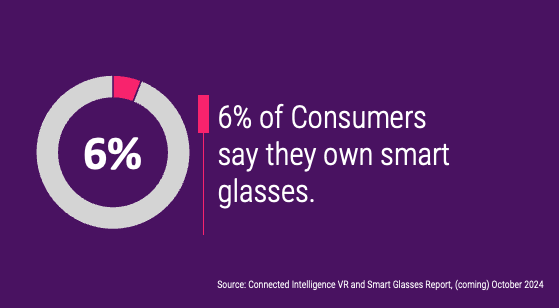
Meta previews Orion AR glasses
Last week was Meta Connect, the company’s time in the sun to show off all the latest hardware and software advances, as well as a chance to highlight Meta’s vision for the future. VR, of course, played a major role with a new budget Quest headset ($300, so perfect for the holiday shopping spree), but the big news was definitely Orion, Meta’s manifestation of “XR” that the company has been teasing for the past decade. Unlike other attempts in this space (think Apple Vision Pro or Meta’s Quest 3), Orion is designed to look like a pair of glasses (think something closer to Meta Ray-Ban). It’s a target many companies have chased at over the years (Google Glass or North Focals back in the day) but no one has nailed it yet. Meta is closer, but there’s still clearly work to be done, which is why this was a concept demo, rather than a launch demo. Indeed, there is no date yet for a commercial launch, although Meta said the Orion would launch in the “near future”.
The glasses include small projectors to display holograms on the lenses. Sensors can track eye and hand tracking (there’s a wristband to aid in this) and microphones to pick up voice commands. And it is all backed up with AI: Meta gave the example of looking in your fridge and asking the AI to suggest a recipe based on your ingredients.
The Circana Take:
- Is Orion perfect? Definitely not. The hardware looks a little too clunky for most consumers. Is it an interesting vision of the future and a step closer than anyone else has got? Yes, for sure. The hardware will improve, becoming sleeker over time, and the AI will definitely drive interesting applications. As such, we would argue that Meta’s demo did exactly what it set out to do: put a stake in the ground that is closer to a final Augmented Reality product than we have seen to date in the market.
Meta Ray-Ban smart glasses updates
With the future-looking demo complete, Meta got back to reality with its Meat Ray-Ban smart glasses. There are no changes to the hardware (a small surprise as many pundits expected a broader range of sunglass options) but instead Meta is adding (of course!) more AI to the glasses. A new updated AI assistant will now let you set reminders based on objects you see. For example, if you are looking at a book, you can say “Hey Meta, remind me to buy that book next Monday” and the AI will know what you mean by “that book.” Not sure that’s the most compelling example Meta could have come up with, but what is more compelling is that live translation is getting better. Live translation will be available for English, French, Italian and Spanish by the end of this year adding yet another reason to wear these glasses while on vacation.
The Circana Take:
- The Meta Ray-Ban smart glasses are becoming the best example of what smart glasses should be with a voice-driven interface rather than attempting to add screens into every device. Combined with Meta’s focus on the Orion project, the company is clearly covering its bases in the smart glasses sector.